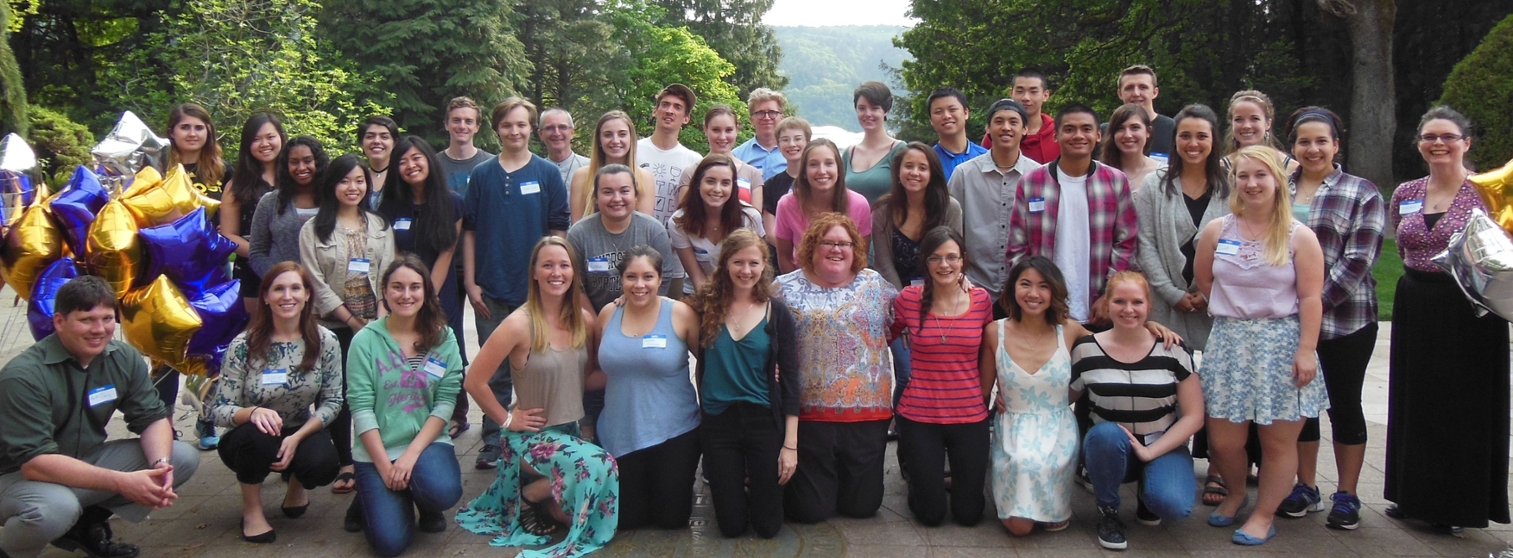
 Current Position: Assistant Professor, School of Education
Current Position: Assistant Professor, School of EducationBeing the first in my nuclear and extended family to attend University had some challenges (especially in the firt two years) which later turned into strengths moving forward. Initially I was caught up in the process of "being a University Student" and what I "thought" that meant. I made a number of initial mistakes including building a timetable that had many short breaks spread out over all five days. I assumed that I would be able to just leave class, find a spot quickly and get to the reading and writing. I was wrong. I also assumed that the reading would be easily accomplished and understood and that, based on high school, I would be able to easily memorize what was needed and wax eloquently on my knowledge in a way that would earn top marks. I was wrong about that too. I assumed that asking professors for help would be easy, they would always be available like my high school teachers were, and that they would know me as my high school teachers did. Wrong on that assumption as well... The list could go on but suffice to say that I needed to learn the "University game" and how to play it well and a few lower marks and a few abrupt conversations with graduate students (never did get near a professor) made that need clear in my mind. What I did next proved to be wise...by accident. I went to the Faculty of Arts and Science advising center drop-in and asked for some guidance on paper writing. WHat I received was guidance on writing and so much more. The junior that I worked with was amazing and she shared writing tips, study tips, and was able to answer questions about so many things. She was also a member of one of the student leadership groups on campus and we talked about that too. Sucking up my pride and going for some "writing help" proved to be monumental in my success going forward. I ran for a position as Student Senator for Education and won. I ran for President of the Education Students Association and won. Through those positions I learned how to navigate the system not only for myself but for many other Education students as I became the lead advocate for them on campus. Those roles landed me opportunities to serve the students in new and exciting ways and, I believe, enabled other students (some may have been FGEN too) to experience success as well in their studies and future careers. All I did really was suck up my pride and ask for help...thanks to an amazing 3rd year student that request changed my FGEN experience from one of surprises and setbacks to one of successes and opportunities. What I did then was STEP-IN to those opportunities and had an incredibly enjoyable and rewarding (personally and professionally) undergraduate experience.
The only experience I had that may be "somewhat" unique is actually the focus of the session I am presenting on November 8th FGEN Day...appealing a grade. Again, like many other faulty assumptions I made in the first two years, I took the words of the syllabus literally...the words were, "If you believe your work was not graded in a fair and just manner you may re-submit for reassessment understanding that the re-assessed grade is final." I won't give away the details of the presentation per se but I can say that I was able to overcome the challenge through discussions with student leaders on campus and...to be fully honest and forthcoming...working through a great deal of fear and intimidation. In the end the issue was resolved in my favor however; my own assessment of that resolution led to other decisions needing to be made. In the end, the impact was positive in many ways however I often wonder what would have been the impact if I had just assumed they were right and not challenged the "system."
By way of advice I would offer the following: 1. Most importantly, understand that asking for help is a strength...not a weakness. Don't think about doing it. Do it. 2. Step-in to opportunities even if you are not sure you are fully "ready." You are never fully ready. 3. High School is great. University is different. Talk to someone (a student) who can explain why. Do this sooner than later.
One of the important things to know about being a mentor is that you don't always get to choose to serve in that role. Others choose you...whether you want the label or not. I believe that the Writing Center assistant went above and beyond the call for me and in doing so helped me solve a number of challenges in being FGEN and being successful as a University student. In that way, I chose her as a mentor of sorts, or perhaps a sage and experienced guide to the "rest of my university journey." By stepping in and asking for help (see advice above) I found my mentor.
Being FGEN and having to navigate my own way through the muddle of first and second year, I believe awoke in me a higher level of independence than I had at high school and introduced me the concept of servant leadership in a formal way. Looking back I now know my father had been setting that example for me for years...I just wasn't ready to see it. The FGEN experience helped me crystallize the importance of service above self which helped me become a strong teacher, principal and Rotarian. As I said earlier, my success is in many ways due to a happy accident. I asked for help. I am not sure what made me do it, why I felt I could or should do it, all I remember now is that I did it and it made all the difference.